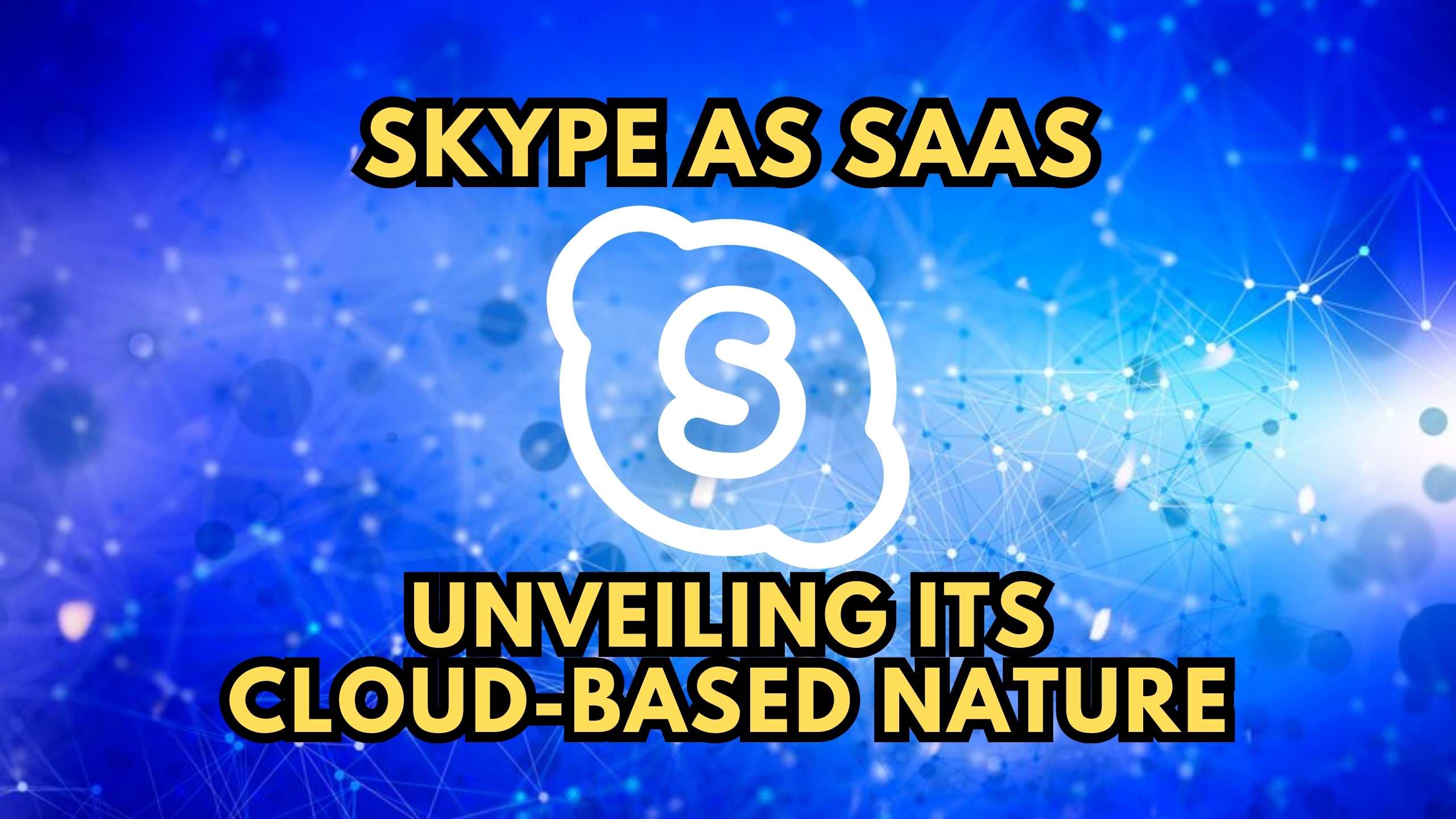Skype as SaaS: Unveiling its Cloud-Based Nature
-


Skype as SaaS: Unveiling its Cloud-Based Nature
Skype, a communication platform widely recognized for its video and voice calling capabilities, has become a prominent player in the realm of Software as a Service (SaaS). In this comprehensive exploration, we delve into the cloud-based nature of Skype and address the common query: Is Skype an example of SaaS?
1. The Cloud Foundation
Skype operates on a cloud-based infrastructure, signifying its SaaS nature. Users access its services remotely, without the need for extensive installations. This cloud-centric approach allows seamless updates, ensuring users always have access to the latest features without manual interventions.
2. Subscription Model Paradigm
Skype’s subscription model aligns with the core principles of SaaS. Users can subscribe to premium plans, unlocking additional features and functionalities. This model not only ensures a steady revenue stream for Skype but also provides users with a scalable and flexible solution based on their communication needs.
3. Continuous Updates and Enhancements
A hallmark of SaaS platforms is the commitment to continuous improvement. Skype, too, follows this principle by regularly rolling out updates and enhancements. This not only keeps the software secure but also introduces new features and optimizations, contributing to a better user experience over time.
4. Data Security and Privacy Measures
In the era of SaaS, data security is paramount. Skype employs robust encryption protocols, ensuring the privacy and security of user communications. This commitment to data protection aligns with the SaaS paradigm, where trust and security are pivotal for user adoption and retention.
5. Collaboration and Integration Capabilities
SaaS solutions often emphasize collaboration and integration possibilities. Skype exemplifies this by seamlessly integrating with other Microsoft 365 tools, fostering a unified communication and productivity ecosystem. This interoperability is a key characteristic of SaaS platforms, promoting efficiency and workflow continuity.
Relevant SaaS Products:
- Zoom: A widely used video conferencing SaaS product, offering a robust platform for remote collaboration and communication.
- Slack: Known for its team collaboration features, Slack is a SaaS tool that enhances communication and workflow efficiency.
- Microsoft Teams: Another product within the Microsoft 365 suite, Teams facilitates team collaboration, chat, and video conferencing.
- Google Meet: Google’s video conferencing solution, providing seamless communication and collaboration capabilities.
- Cisco Webex: A comprehensive SaaS platform for video conferencing, online meetings, and team collaboration.
Conclusion
In conclusion, Skype undeniably fits into the SaaS landscape with its cloud-based architecture, subscription model, continuous updates, focus on data security, and collaboration capabilities. As businesses and individuals embrace the flexibility of cloud-based solutions, Skype remains a relevant and essential player in the SaaS ecosystem.
Revolutionize Your Communication with Subscribed.fyi!
Ready to revolutionize your communication and SaaS experience? Subscribed.fyi is your all-in-one solution for managing your SaaS stack. Sign up for free today and unlock exclusive deals on essential tools. Manage your subscriptions effortlessly and gain insights to make informed decisions about your SaaS tools.
Relevant Links:





